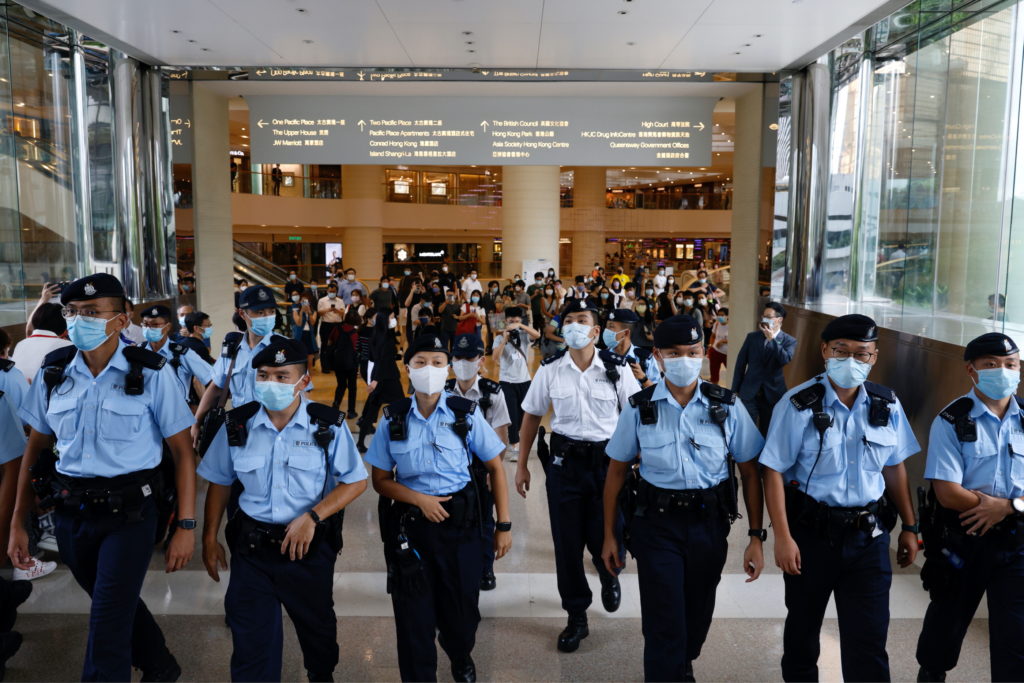Richard Kimber:
China has introduced sweeping political reforms in Hong Kong that give it more control over the city’s legislature. It says that’ll make decision-making more efficient and that there’ll still be room for a variety of political views.
But the changes are deepening concerns among the public and in corporate boardrooms.
Here in Hong Kong’s Central Business District, there are global investment banks on every street corner. And many don’t just use Hong Kong as their gateway to China, but as their Asian regional headquarters.
That could be set to change. The U.S. says that, since the introduction of Hong Kong’s national security law, businesses operating there face new dangers, including electronic surveillance without warrants and the enforced surrender of corporate data.
The American Chamber of Commerce says it’s committed to staying in Hong Kong, but it’s calling on the authorities to be more transparent about their legislative plans to give American companies more confidence to stay put.
The government says that its economic data shows that investor confidence in Hong Kong has been boosted, not shaken, by the national security law, and that, even if there is an exodus of talent from the city, it can easily be replaced from overseas or from across the border in mainland China.
The economy is bouncing back strongly from the effects of COVID-19, but that confidence isn’t filtering through to all the city’s potential future business leaders. This woman is an intern at a fast growing tech start-up in the city. We will call her Candice. She wanted to remain anonymous for this report.
A lifelong Hong Konger, she will soon graduate from the city’s top-ranked university, but says she and many of her friends are planning their future elsewhere.













































